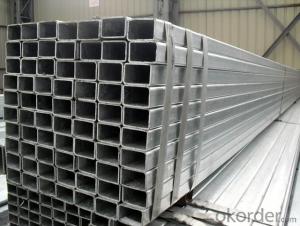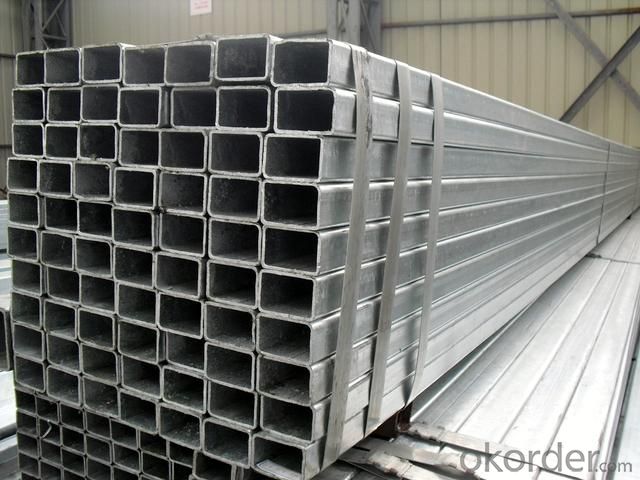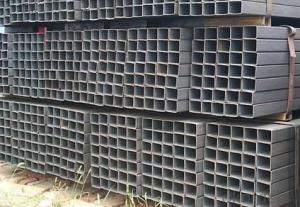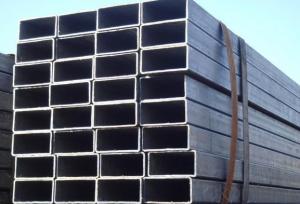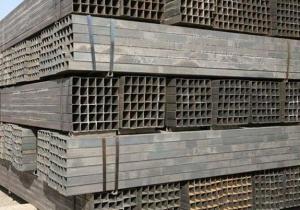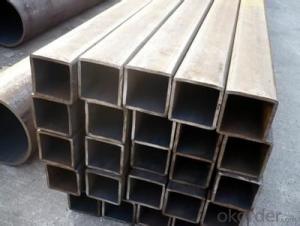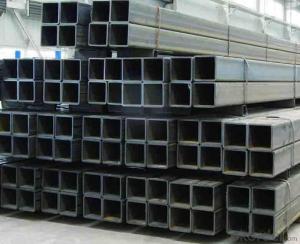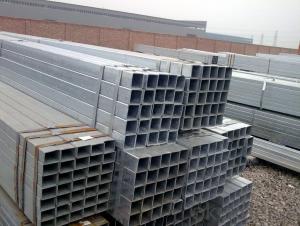Q195/Q235/Q345 Rectangular hollow section/ RHS
- Loading Port:
- Tianjin
- Payment Terms:
- TT OR LC
- Min Order Qty:
- 10 m.t.
- Supply Capability:
- 5000 m.t./month
OKorder Service Pledge
OKorder Financial Service
You Might Also Like
Product Name | rectangular hollow section/ RHS | |
Size | Size: | 10*10--500*500mm |
Thickness: | 0.45--16mm | |
Length: | 3-12m | |
Steel Grade | Q195,Q215,Q235,Q345,16Mn, 20# | |
Standard | ASTM A500,EN10219,GB/T6728,GB/T6725,JIS G3466 | |
Usage | 1. For Structure, Airport, Railway 2. Construction and so on. | |
Ends | Plain end or By Your Choice | |
Surface | Bared Or With Oiled Or Galvanized | |
Technique | ERW ,Hot Rolled and Cold Rolled | |
Section Shape | Rectangular | |
Inspection | With Hydraulic Testing, Eddy Current , Infrared Test | |
Package | Bags, Bundle, In Bulk, Containers | |
MOQ | 20 Metric Ton / Can Be Negotiated | |
Supply Ability | 15,000 Metric Ton/Month | |
Date of Delivery | 7 days(Qty within 1000 Metric Ton) or According To The Quantity | |
Port of Shipment | Tianjin, China | |
Payment | L/C T/T | |
- Q: How are steel pipes installed underground?
- Steel pipes are installed underground through a process called trenchless installation or open trench excavation. In trenchless installation, a drilling machine creates a tunnel underground, and the steel pipes are then inserted into the tunnel using a technique called pipe jacking or horizontal directional drilling. In open trench excavation, a trench is dug, and the steel pipes are laid in the trench before being covered with backfill material.
- Q: How are steel pipes used in water treatment plants?
- Steel pipes are commonly used in water treatment plants for various purposes, such as transporting water from different sources, distributing water to different treatment units, and conveying treated water to storage tanks or distribution networks. They are also used in the construction of infrastructure components like pumping stations, filtration units, and chemical dosing systems. Additionally, steel pipes provide durability, corrosion resistance, and the ability to withstand high pressures, making them suitable for handling the demands of water treatment processes.
- Q: What are the different grades of steel pipes?
- The different grades of steel pipes vary based on their chemical composition and physical properties. Some commonly used grades include carbon steel pipes (grades A, B, and C), alloy steel pipes (grades P1, P5, P9, and P11), stainless steel pipes (grades 304, 316, and 321), and duplex steel pipes (grades 2205 and 2507). Each grade offers specific characteristics suited for different applications and industries.
- Q: How are steel pipes used in the manufacturing of chemical processing plants?
- Steel pipes are commonly used in chemical processing plants for various purposes, such as transporting fluids and gases, as well as providing structural support. They are highly resistant to corrosion, making them ideal for handling corrosive materials in the plant. Additionally, steel pipes can withstand high temperatures and pressure, ensuring the safe and efficient operation of chemical processes.
- Q: How are steel pipes protected against fire hazards?
- Steel pipes are protected against fire hazards through various methods, including the application of fire-resistant coatings, encasement in fire-rated materials, and the installation of fire sprinkler systems. Additionally, fire stops and fire barriers are used to prevent the spread of fire and smoke through pipe penetrations in walls and floors.
- Q: How is the steel pipe dance installed at home?
- According to international competition practice, the standard size of steel tube is 40 mm or 45 mm in diameter, and the 45mm is usually used. The height of the steel pipe is not less than 3.3 meters and not higher than 4 meters. The steel pipe fittings used in the pipe dance are made of smooth surface material, usually chrome or polished by steel or iron.
- Q: What is the maximum temperature and pressure that steel pipes can withstand?
- The maximum temperature and pressure that steel pipes can withstand vary depending on the specific grade and type of steel being used. However, in general, steel pipes can withstand high temperatures and pressures due to their strong and durable nature. For high-temperature applications, such as in steam or heat transfer systems, steel pipes can typically withstand temperatures up to 1000 degrees Celsius (1832 degrees Fahrenheit) or even higher. It is important to note that the specific temperature limit may vary depending on the alloy composition and heat treatment of the steel. Regarding pressure, steel pipes are known for their excellent strength and resistance to internal and external pressure. The maximum pressure that steel pipes can withstand will depend on factors such as the pipe diameter, wall thickness, and material strength. In industrial applications, steel pipes can withstand pressures ranging from a few hundred psi (pounds per square inch) to several thousand psi. To ensure the safe operation of steel pipes under high temperatures and pressures, it is crucial to follow industry standards and guidelines, as well as perform regular inspections and maintenance. Consulting with engineers and professionals experienced in steel pipe systems can provide more specific information regarding the maximum temperature and pressure limits for a particular steel pipe application.
- Q: How do steel pipes handle expansion and contraction?
- Steel pipes handle expansion and contraction through their inherent elasticity and ability to withstand high temperatures. When exposed to heat, steel pipes expand due to thermal expansion, and when cooled, they contract due to thermal contraction. This expansion and contraction are accommodated by the flexibility of the steel material, allowing it to withstand the changes in size without significant damage or deformation. Additionally, proper installation techniques such as the use of expansion joints and loops can also help accommodate the expansion and contraction of steel pipes, ensuring their integrity and longevity.
- Q: Can steel pipes handle extreme weather conditions?
- Yes, steel pipes are known for their durability and ability to withstand extreme weather conditions. They are resistant to corrosion, rust, and can handle high temperatures, making them suitable for various climate conditions.
- Q: Can steel pipes be used for underground gas storage?
- Certainly! Underground gas storage can indeed utilize steel pipes. Steel pipes are frequently employed in the transportation and storage of diverse gas varieties, such as natural gas, owing to their robustness, longevity, and ability to resist corrosion. These pipes can endure substantial pressures and can be tailored to meet the specific prerequisites of subterranean gas storage installations. Furthermore, materials can be applied to the surfaces of steel pipes, either as a coating or lining, to bolster their resistance to corrosion and avert any possible leaks. Nevertheless, it is crucial to ensure that the correct safety protocols and regulations are adhered to during the construction and operation of underground gas storage facilities to prevent any potential perils or hazards.
Send your message to us
Q195/Q235/Q345 Rectangular hollow section/ RHS
- Loading Port:
- Tianjin
- Payment Terms:
- TT OR LC
- Min Order Qty:
- 10 m.t.
- Supply Capability:
- 5000 m.t./month
OKorder Service Pledge
OKorder Financial Service
Similar products
Hot products
Hot Searches
Related keywords
